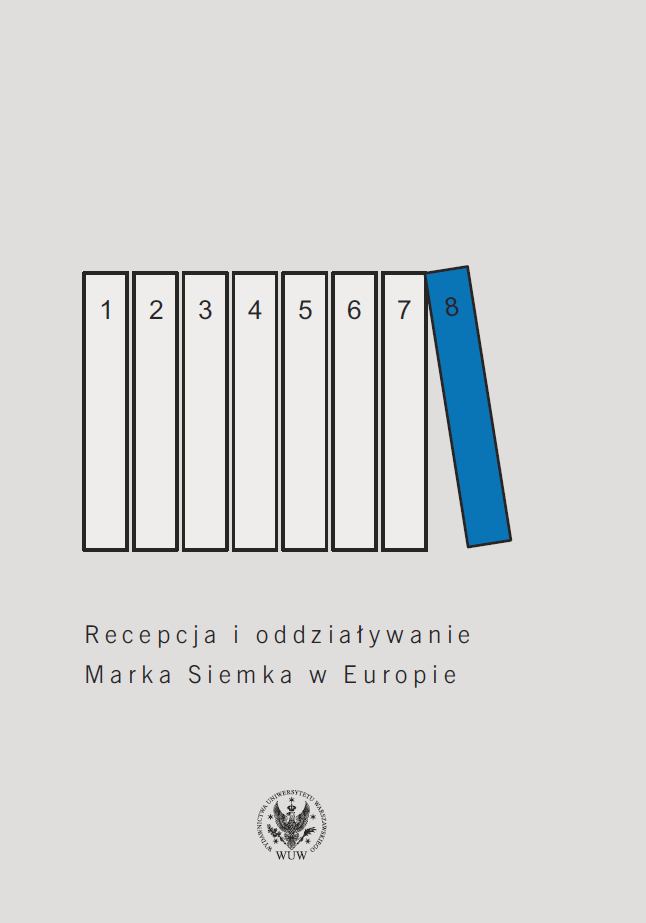„Aspołeczna towarzyskość” i ludzkie pożądanie: Kant, Herder i Hemsterhuis o antagonizmie władającym światem i ludzkim duchem
"Asocial sociability" and human desire: Kant, Herder and Hemsterhuis about antagonism ruling the world and the human spirit
Author(s): Mario Marino
Subject(s): Philosophy
Published by: Wydawnictwa Uniwersytetu Warszawskiego
Keywords: Immanuel Kant; Frans Hemsterhuis; Johann Gottfried Herder; unsocial sociability (ungesellige Geselligkeit); human nature and freedom vs. domination; philosophy of history; metaphysics of desire
Summary/Abstract: Immanuel Kant’s well known formulation of „unsocial sociability”(ungesellige Geselligkeit) stands in the history of philosophy for an actually larger question – the coexistence in nature, human beings and history of two opposite tendencies: i.e. that towards unification and that to self-relationship – involving not only practical philosophy and the philosophy of history but also psychology, ontology and the metaphysics of nature. After showing on the basis of unpublished manuscripts Herder’s deep awareness of both Kant’s philosophy of history and the related theory of unsocial sociability, the chapter focuses on some of these aspects, by analyzing on the one hand Kant’s and Herder’s dispute about history, and on the other hand Hemsterhuis’ metaphysics of desire and Herder’s commentary. Special attention is devoted to issues such as: 1) the anthropological foundation of both political domination vs. human freedom; 2) the essence and necessity of state institutions; 3) the controversy over the superiority of law or culture in human life; and 4) the ontological and moral primacy of the individual over abstract norms and totalizing institutions.
Book: Marek J. Siemek, Dzieła. VIII. » Recepcja i oddziaływanie Marka Siemka w Europie «
- Page Range: 201-216
- Page Count: 16
- Publication Year: 2019
- Language: Polish
- Content File-PDF

